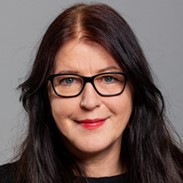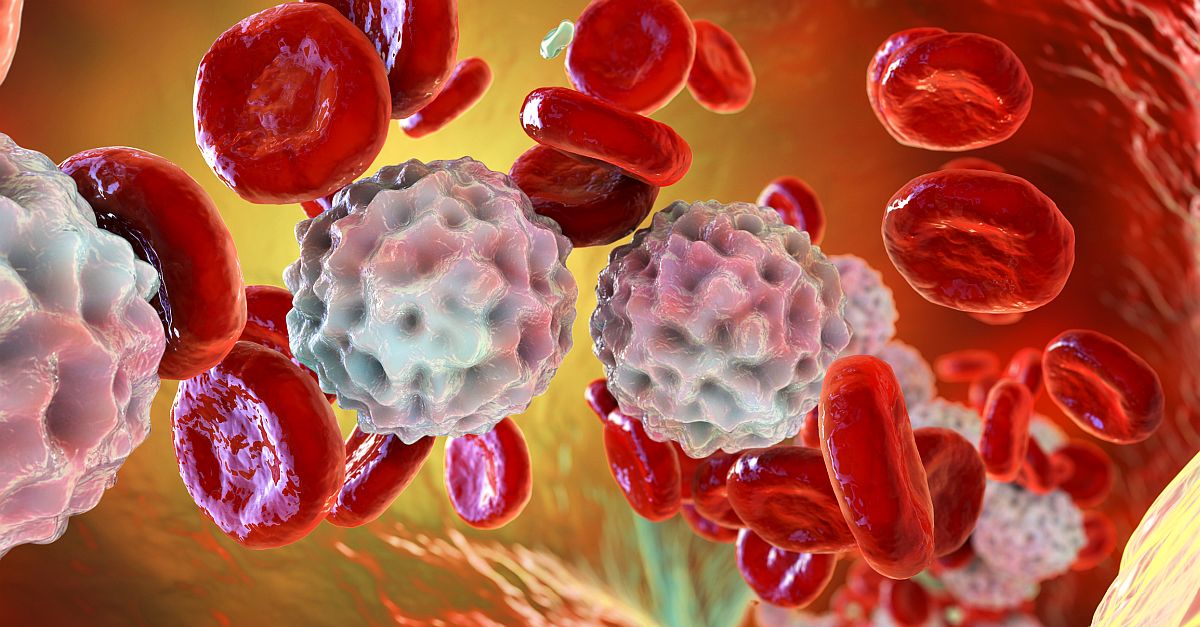 In our series of expert perspectives, Aptitude Health spoke with Dr Nicola Gökbuget from the University Hospital Frankfurt, Germany, for her perspective on current practices in adult acute lymphoblastic leukemia (ALL) management. Dr Gökbuget has worked at the University Hospital Frankfurt for more than 25 years, and as senior physician, she heads the study center of the Department of Medicine II. She is task force director for clinical trials of the University Cancer Center. Dr Gökbuget is also coordinating or principal investigator of numerous academic or industry-sponsored trials in adult ALL and related diseases such as lymphoblastic lymphoma or Burkitt lymphoma.
In our series of expert perspectives, Aptitude Health spoke with Dr Nicola Gökbuget from the University Hospital Frankfurt, Germany, for her perspective on current practices in adult acute lymphoblastic leukemia (ALL) management. Dr Gökbuget has worked at the University Hospital Frankfurt for more than 25 years, and as senior physician, she heads the study center of the Department of Medicine II. She is task force director for clinical trials of the University Cancer Center. Dr Gökbuget is also coordinating or principal investigator of numerous academic or industry-sponsored trials in adult ALL and related diseases such as lymphoblastic lymphoma or Burkitt lymphoma.
For more than 20 years, she has served as coordinator of the German Multicenter Study Group for Adult ALL (GMALL), with more than 140 participating hospitals across Germany She founded and established a national registry for ALL with an associated biobank and has chaired the European Hematology Association Scientific Working Group for ALL. Dr Gökbuget is a founding member and board member of the German Network for Acute and Chronic Leukemias and the European LeukemiaNet (ELN). She is also a founding member of the ELN Working Group for Adult ALL and is editor of the European ALL guidelines book.
In your opinion, what is the most important achievement in the treatment of ALL in the last 5 years?
I think there are 3 major things:
- One is the intensification of first line therapy based on the experience with pediatric studies. These pediatric protocols were used for adult ALL by most study groups in the past, but we now perform the further intensification of these protocols with a focus on specific parts of the protocols. For example, the use of asparaginase or the optimization of maintenance therapy.
- Second is, of course, the further expansion of the use of tyrosine kinase inhibitors (TKI) in Ph-positive [Philadelphia chromosome-positive] ALL, which became a standard and led to a great improvement of outcomes in these subgroups. Now we are on the way to further optimization of these protocols and may even have the opportunity to reduce the rate of stem cell transplantation in this subgroup and to answer important questions like the definition of the optimal TKI for newly diagnosed ALL.
- Third is the immunotherapies, which have been introduced mainly in relapsed/refractory ALL and yield a very good response rate there, but unfortunately still do not provide satisfactory outcomes in long-term survival. There has also been some progress made in optimization of these regimens. One important learning is that compounds are better used in lower disease levels, which means persistent or recurrent minimal residual disease. We have learned more about the optimal use, and now the latest big step is integration of these regimens earlier, into first line treatment. We are still awaiting data from randomized trials, which may lead to a marketing authorization and reimbursement for these types of protocols.
Beyond management, we have also learned a lot about biologic characterization of ALL, which has not had much practical impact yet, but may in the future give better guidance for the selection of a more-targeted therapeutic approach.
What is the biggest disappointment in ALL management in the last 5 years?
I think this too is related to the issue of pediatric and pediatric-based regimens. For me, it was a big disappointment that new age cuts were integrated into the management of adult ALL without a data-based rationale. For example, some pediatric trials included patients up to the age of 45 years, while some young adult trials stop at 30 or 25 years, and other trials include patients between the ages of 18 and 39 years. All of this led to confusion of the clinical trial designs around the world and makes things much less comparable internationally. It also had rather severe consequences for clinical trials with new compounds. For example, the first CAR T cell available for ALL was only registered for up to age 25. I think this is a very serious consequence of all these age cuts, and we have to work on this and try to come back to a rational basis for treatment decisions, not just at certain age cuts. It should be data-based, not simply because somebody said the pediatric regimen can be used up to the age of 25. This is now a definition that is used for marketing authorization. I think it’s really a challenging situation.
So, what is the most important medical need in ALL management?
I think it is very important to integrate immunotherapies earlier during treatment, but this is very challenging because the first line treatments are defined nationally in Europe, for example, by national study groups like the GMALL. I am not sure how we can demonstrate the benefit of these new regimens without randomized trials. On the other hand, the development is going on so quickly that in the United States, the new compounds are included in the NCCN [National Comprehensive Cancer Network] guidelines and can be used already in first line. How will we be able to complete trials that compare these compounds to the standard of care?
The other medical need is still mainly in the older patient population, where we need to improve outcomes and where new regimens are tested. So a first randomized trial with immunotherapy will start in older patients, and we have many phase II trials in this setting. It could happen that we have big progress here, which would then also have an impact on the management of younger patients.
In younger patients, we have excellent results with systemic chemotherapy, but of course, a lot of side effects and also late effects. If we show in the older population that these new regimens lead to a very good outcome, we can maybe learn something also about induction regimens for younger patients.
What would help early accessibility of novel therapies across Europe?
I think we should focus on getting a more-generic approval for the immunotherapies in first line, for example, use as a consolidation cycle, use as an induction cycle. It would be then possible for each study group or each country to integrate these compounds into their specific regimens where they have experience. You should not forget that we have a very rare disease in ALL, and at least in Germany, the number of patients per site is low. We have many sites, and it cannot be imaginable that a new compound is registered in a backbone other than the backbone with which we have experience. That would lead to a lot of problems, and therefore, I think a generic approach would be good. Furthermore, the real-world experience collected by study groups could be used to generate historical comparative data. So this would be an idea, but I think all the physicians, the pharmaceutical industry, the payors, and the regulatory authorities have to discuss how we can deal with this problem now that we have this rapidly moving field in ALL as a rare disease with very complex treatment strategies. We have to be creative about approaches to make all these new compounds available for patients, but payable and on a rational basis.
What is the most interesting strategic direction of further development in ALL?
I think we need to better align our research on the international level, because we will certainly come to research treatments in increasingly smaller subgroups. And we have to develop creative ideas for aligning research. For example, use similar data collection methodology to make later combination of clinical trial data easier, such as uniform definitions for certain outcomes, and to adhere to these.
International collaboration not only includes adult studies, but we should also have a better collaboration with pediatricians. There are new compounds directed to rare subtypes, like a relapsed/refractory T-[cell] ALL, and we should get rid of the age cuts in this setting and look into the whole population of ALL. There is very often no good rationale to separate the pediatric and the so-called adult populations, even at the age of 18. Therefore, I think we need better collaboration at the individual sites and also for the design of clinical trials.
So, do you think the treatment approach in ALL is global or regional?
In terms of treatment principles, it is global. But in terms of the individual design of the regimen, it is regional/national. We have the very good situation, for example, in Europe, but also in other regions, to have academic study groups who organize the management of ALL in the different countries, so I think the national structure is good. Because there is no global study group, we need a national approach but with better international alignment of the treatment approaches. This refers to the approach between the United States and Europe and other regions where the challenges are much different. The basic problem is that there is no money for all of this collaboration. We can only apply for individual trials, but there is no money to improve the outcome globally or to pay for the interaction of study groups or to make a plan like this.

